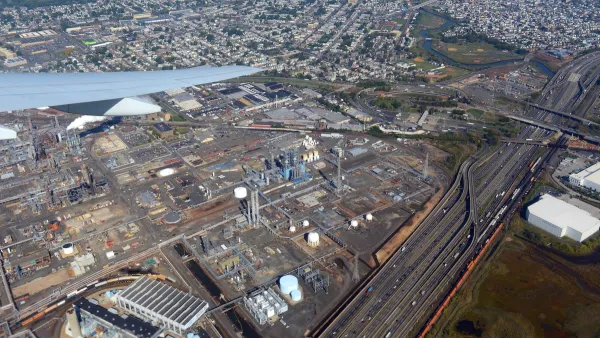What’s good for the planet is good for the economy, according to a recent study published by the Lincoln Institute of Land Policy.

Anthony Flint writes for the Lincoln Institute of Land Policy to explain the findings of a recent working paper, “Building the Breathable City.” The study, authored by Alexander Lord, Erwin van der Krabben, and Guanpeng Dong, documents the connection between air quality and land values in China.
“The kind of analysis done in Zhengzhou is important because it directly links environmental improvements to increasing value. Demonstrating that link is crucial in making the case for a financial tool that could be essential for addressing the climate crisis: land value capture," writes Flint.
The article provides more detail about land value capture as an emerging tool for municipalities and countries to generate revenue for the adaptation and mitigation investments that will be required of climate change. There is a growing list of projects that have successfully delivered economic benefit by investing in climate resilience and environmental sustainability, as documented by Flint, including projects in Quito, Seattle, Philadelphia, Buenos Aires, Tokyo, and Boston.
Still, the emerging evidence in support of an environmental approach to economic development has a long way to go to become the status quo. According to Flint, “many barriers must be overcome to make land value capture work. National urban development laws need to be reformed to authorize more local governments to mobilize land value increments and permit own-source revenue. Around the world, a pressing need remains to improve institutional capacity, good governance, land controls, and tenure systems.”
The Lincoln Institute of Land Policy has also created a Land-Based Climate Finance page that explains how municipalities can leverage capital stock is embedded in land, buildings, and infrastructure to generate revenue streams for climate adaptation, mitigation, and resilience.
FULL STORY: Return on Investment: Research Links Climate Action with Land and Property Value Increases

Analysis: Cybertruck Fatality Rate Far Exceeds That of Ford Pinto
The Tesla Cybertruck was recalled seven times last year.

National Parks Layoffs Will Cause Communities to Lose Billions
Thousands of essential park workers were laid off this week, just before the busy spring break season.

Retro-silient?: America’s First “Eco-burb,” The Woodlands Turns 50
A master-planned community north of Houston offers lessons on green infrastructure and resilient design, but falls short of its founder’s lofty affordability and walkability goals.

Test News Post 1
This is a summary

Analysis: Cybertruck Fatality Rate Far Exceeds That of Ford Pinto
The Tesla Cybertruck was recalled seven times last year.

Test News Headline 46
Test for the image on the front page.
Urban Design for Planners 1: Software Tools
This six-course series explores essential urban design concepts using open source software and equips planners with the tools they need to participate fully in the urban design process.
Planning for Universal Design
Learn the tools for implementing Universal Design in planning regulations.
EMC Planning Group, Inc.
Planetizen
Planetizen
Mpact (formerly Rail~Volution)
Great Falls Development Authority, Inc.
HUDs Office of Policy Development and Research
NYU Wagner Graduate School of Public Service




























